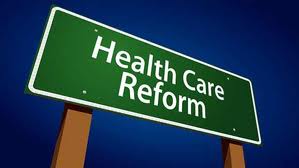Summary: What are the popular opinions surrounding the Affordable Care Act? Are you a proponent or an opponent of the ACA?
Summary: What are the popular opinions surrounding the Affordable Care Act? Are you a proponent or an opponent of the ACA?
The Affordable Care Act (ACA) is a common term referring to the Patient Protection and Affordable Care Act (PPACA) of 2010. Other terms used are Healthcare Reform and Obamacare. But, what is it? The ACA is a comprehensive piece of legislation that is healthcare specific and touches on just about every aspect of healthcare in the United States, from Healthcare Insurance Exchanges to Accountable Care Organizations, from Medicare to Medicaid, from volume to value, from quantity to quality, and from pre-existing conditions to donut holes. The ACA affects all types of insurance from private to commercial to government. The ACA’s purpose is to provide affordable, accessible, and accountable healthcare. A piece of legislation that covers this magnitude has both proponents and opponents. Here are some of the opinions being expressed (some of these can be construed as both positive and negative):
are Healthcare Reform and Obamacare. But, what is it? The ACA is a comprehensive piece of legislation that is healthcare specific and touches on just about every aspect of healthcare in the United States, from Healthcare Insurance Exchanges to Accountable Care Organizations, from Medicare to Medicaid, from volume to value, from quantity to quality, and from pre-existing conditions to donut holes. The ACA affects all types of insurance from private to commercial to government. The ACA’s purpose is to provide affordable, accessible, and accountable healthcare. A piece of legislation that covers this magnitude has both proponents and opponents. Here are some of the opinions being expressed (some of these can be construed as both positive and negative):
All those in favor:
- More accessible coverage will expand the number of Americans who are insured.
- Removal of pre-existing conditions as criteria for coverage will allow more Americans to be covered.
- College students can stay on their parent’s plans until the age of 26. This gives college students one less thing to worry about in regard to
 the financial aspects of attending school.
the financial aspects of attending school. - Medicaid expansion will provide additional opportunities for lower income families. Incentive programs are being implemented at the state level to encourage Medicaid expansion.
- Elimination of the donut hole will enable those on Medicare to reduce stress that normally occurs at the end of the year. I have never understood this concept.
- Establishment of health insurance exchange will aid in the accessibility and affordability of insurance.
- Establishment of health insurance subsidies will assist those who can’t afford insurance.
- Health insurance claim denials are easier to appeal. The process has been simplified and made more accessible to expedite the process.
- Additional focus is being placed on reimbursement issues. Reimbursement is moving toward being based upon value and quality rather than volume and quantity. This will aid in the pursuit of providing/receiving higher quality healthcare with more stringent standards.
- Penalties will be assessed to both consumers and employers who don’t purchase/offer insurance. This will provide more accountability from both sides.
All those opposed:
- More accessible? Maybe. Or maybe not. Expanding Medicaid and Medicare may provide additional accessibility and may also provide a hindrance. With the cutbacks on Medicare and other cutbacks in the works, some organizations/physician’s offices are opting not to take Medicare/Medicaid clients. So is it really more accessible if patient’s have to travel further (if even willing to do so)?
- Removal of pre-existing conditions is good in theory, but will provide a higher experience/loss rate which could very well drive healthcare
 premiums as well as the costs for services and could affect the pocketbook of just about every consumer.
premiums as well as the costs for services and could affect the pocketbook of just about every consumer. - Health insurance exchanges will create a socialist economy in which the government will have too much control over individuals and the choices afforded them. The government will be able to set rates and insurance companies will have little to no control. Health insurance premiums will increase dramatically. How can it be illegal for someone not to have insurance? What happened to freedom of choice?
- While health insurance subsidies are designed to assist those who can’t afford insurance, there are also tax consequences and the potential to have to pay some of the subsidy back if actual income is greater than the estimate on which the subsidy was based.
- While reimbursement is becoming a focus, there are also cutbacks in areas such as Medicare reimbursement. The smaller organizations will have a much more difficult time trying to maintain/increase their bottom line. There will see many more mergers and acquisitions over the next few years as a means of survival. Should the government be so involved in the practice of medicine?
- The US deficit is now in the trillions. Part of the ACA is to increase taxes to help reduce the deficit. This in conjunction with reducing spending in areas such as Medicare provides a dual edged sword for organizations. They are being hit from both sides.
- The penalties assessed to employers are minimal as compared to the cost of offering insurance. Many, especially larger companies, will take the penalty and actually save money. This will force more consumers into the health exchange market.
There is no such thing as a perfect healthcare system. Any system will have both proponents and opponents. There are a lot of issues with the implementation of the ACA. Overall, the concepts are good. Let’s provide health insurance to more individuals. Let’s make healthcare more affordable. Let’s remove some of the barriers and limits. Let’s provide better quality care. The ACA will continue implementing specific provisions through 2014. Be sure to remain up to date of what is becoming effective and when. A great resource is healthcare.gov for the most current information.


 the financial aspects of attending school.
the financial aspects of attending school. premiums as well as the costs for services and could affect the pocketbook of just about every consumer.
premiums as well as the costs for services and could affect the pocketbook of just about every consumer.




